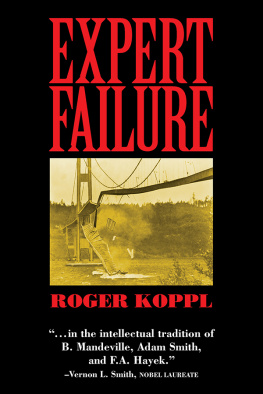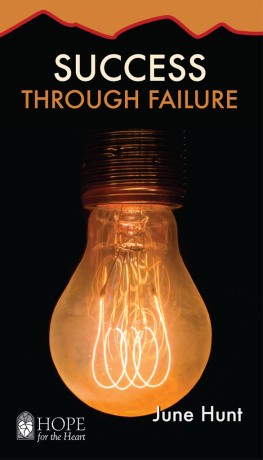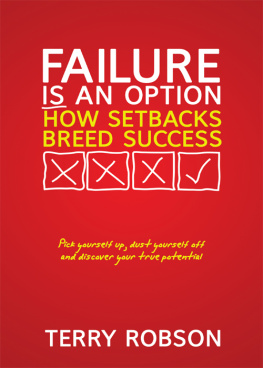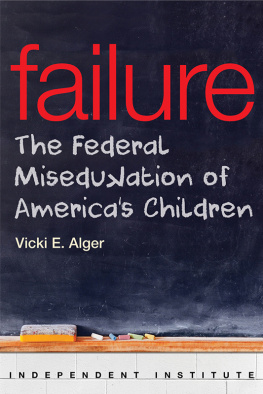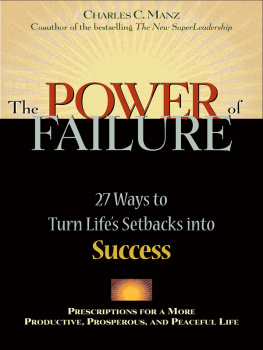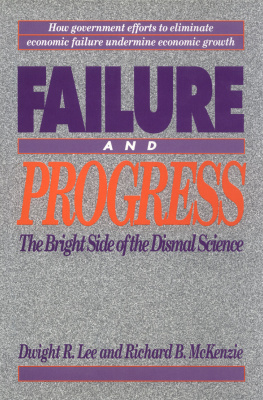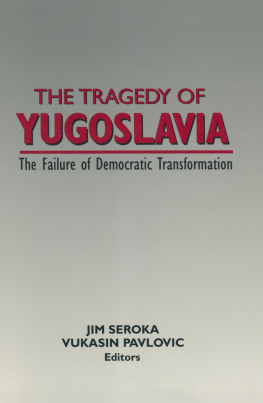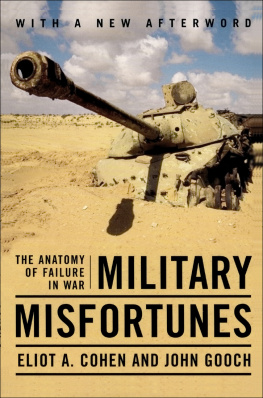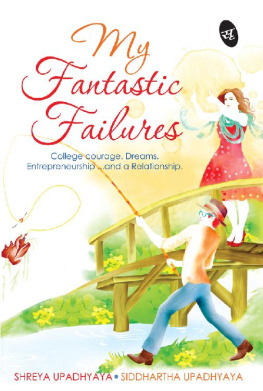Koppl - Expert Failure
Here you can read online Koppl - Expert Failure full text of the book (entire story) in english for free. Download pdf and epub, get meaning, cover and reviews about this ebook. year: 2017, publisher: Cambridge Univ Pr, genre: Politics. Description of the work, (preface) as well as reviews are available. Best literature library LitArk.com created for fans of good reading and offers a wide selection of genres:
Romance novel
Science fiction
Adventure
Detective
Science
History
Home and family
Prose
Art
Politics
Computer
Non-fiction
Religion
Business
Children
Humor
Choose a favorite category and find really read worthwhile books. Enjoy immersion in the world of imagination, feel the emotions of the characters or learn something new for yourself, make an fascinating discovery.
Expert Failure: summary, description and annotation
We offer to read an annotation, description, summary or preface (depends on what the author of the book "Expert Failure" wrote himself). If you haven't found the necessary information about the book — write in the comments, we will try to find it.
Expert Failure — read online for free the complete book (whole text) full work
Below is the text of the book, divided by pages. System saving the place of the last page read, allows you to conveniently read the book "Expert Failure" online for free, without having to search again every time where you left off. Put a bookmark, and you can go to the page where you finished reading at any time.
Font size:
Interval:
Bookmark:

Expert Failure
The humble idea that experts are ordinary human beings leads to surprising conclusions about how to get the best possible expert advice. All too often, experts have monopoly power because of licensing restrictions or because they are government bureaucrats protected from both competition and the consequences of their decisions. This book argues that in the market for expert opinion we need real competition in which rival experts may have different opinions and new experts are free to enter. But the idea of breaking up expert monopolies has far-reaching implications for public administration, forensic science, research science, economics, Americas military-industrial complex, and all domains of expert knowledge. Roger Koppl develops a theory of experts and expert failure, and uses a wide range of examples from forensic science to fashion to explain the applications of his theory, including state regulation of economic activity.
Roger Koppl is Professor of Finance in the Whitman School of Management at Syracuse University in New York, and a faculty fellow in the Universitys Forensic and National Security Sciences Institute. His work has been featured in The Atlantic , Forbes , and The Washington Post .
Timur Kuran, Duke University
Peter J. Boettke, George Mason University
This interdisciplinary series promotes original theoretical and empirical research as well as integrative syntheses involving links between individual choice, institutions, and social outcomes. Contributions are welcome from across the social sciences, particularly in the areas where economic analysis is joined with other disciplines such as comparative political economy, new institutional economics, and behavioral economics.
Expert Failure
Roger Koppl
Syracuse University


University Printing House, Cambridge CB2 8BS, United Kingdom
One Liberty Plaza, 20th Floor, New York, NY 10006, USA
477 Williamstown Road, Port Melbourne, VIC 3207, Australia
314321, 3rd Floor, Plot 3, Splendor Forum, Jasola District Centre, New Delhi 110025, India
79 Anson Road, #0604/06, Singapore 079906
Cambridge University Press is part of the University of Cambridge.
It furthers the Universitys mission by disseminating knowledge in the pursuit of education, learning, and research at the highest international levels of excellence.
www.cambridge.org
Information on this title: www.cambridge.org/9781316503041
DOI: 10.1017/9781316481400
Roger Koppl 2018
This publication is in copyright. Subject to statutory exception and to the provisions of relevant collective licensing agreements, no reproduction of any part may take place without the written permission of Cambridge University Press.
First published 2018
Printed in the United States of America by Sheridan Books, Inc.
A catalogue record for this publication is available from the British Library.
ISBN 978-1-107-13846-9 Hardback
ISBN 978-1-316-50304-1 Paperback
Cambridge University Press has no responsibility for the persistence or accuracy of URLs for external or third-party internet websites referred to in this publication and does not guarantee that any content on such websites is, or will remain, accurate or appropriate.
To Maria, who brings joy
Leonard Read taught us that no one knows how to make a pencil. Something similar can be true of a book. My name appears on the title page, but the true authors of this book are the participants in several scholarly communities I have had the honor of engaging, as well as many journalists, reformers, forensic scientists, public defenders, intellectuals, family, friends, acquaintances, and passing strangers. I will single out a few persons for thanks, but I know I have unwillingly omitted others no less deserving of gratitude and acknowledgment. I thank them all. Unfortunately, however, I cannot blame them for anything wrong with this book.
My wife, Maria Minniti, has been an unfailing source of love, support, and stinging criticism. Peter Boettke has provided encouragement and helpful commentary. I have profited from an ongoing conversation on experts with David Levy and Sandra Peart. Stephen Turner helped me work out the contours of the literature on experts. Ronald Polansky improved my understanding of Socrates and the Apology. I have profited from exchanges with Simon Cole and from opportunities and generous help he has given me. Alvin Goldman has given me some helpful lessons in social epistemology. He is not to blame for my more synecological vision, however. Lawrence Kobilinsky extended himself to eliminate errors and omissions from my first published paper on forensic science, which led to my work on the general problem of experts. Our conversations have been helpful and stimulating. Michael Risinger has provided many stimulating comments and conversations, along with general support and encouragement. Phillip Magness and David Singerman both helped me understand J. M. Keyness opinions on eugenics and eugenic policy. Phil also guided me to source materials on that topic. Francisco Doria provided a manuscript copy of After Gdel , which was later published as Gdels Way . Chico has also helped me with computability theory. Santiago Gangotena suggested the metaphor experts all the way down.
I received help from many other people. A few of them are Trey Carson, Jim Cowan, Alexander Wade Craig, David Croson, James Della Bella, William Butos, David Colander, Christpher Coyne, Abigail Deveraux, Itiel Dror, Teppo Felin, Christine Funk, Paul Giannelli, Nathan Goodman, Colin Harris, Keith Harward, Steve Horwitz, Keith Inman, Stuart Kauffman, Dan Krane, Robert Kurzban, Moren Lvesque, David Lucas, Thomas McQuade, Barkley Rosser, Norah Rudin, Meghan Sacks, John Schiemann, Vernon Smith, the late Ion Sterpan, William Thompson, Richard Wagner, and Lawrence Yuter.
I learned a lot at the Wirth Institutes third biennial Austrian School of Economics Conference, Austrian Views on Experts and Epistemic Monopolies, which was held in Vancouver on October 1516, 2010. Participants included David Croson, Arthur Diamond, Laurent Dobuzinskis, Rob Garnett, Steve Horwitz, Leslie Marsh, Sandra Peart, Emily Skarbek, Diana Thomas, and Alfred Wirth. I appreciate the support Alfred Wirth and the Wirth Institute have given to this and other Austrian conferences.
Font size:
Interval:
Bookmark:
Similar books «Expert Failure»
Look at similar books to Expert Failure. We have selected literature similar in name and meaning in the hope of providing readers with more options to find new, interesting, not yet read works.
Discussion, reviews of the book Expert Failure and just readers' own opinions. Leave your comments, write what you think about the work, its meaning or the main characters. Specify what exactly you liked and what you didn't like, and why you think so.

